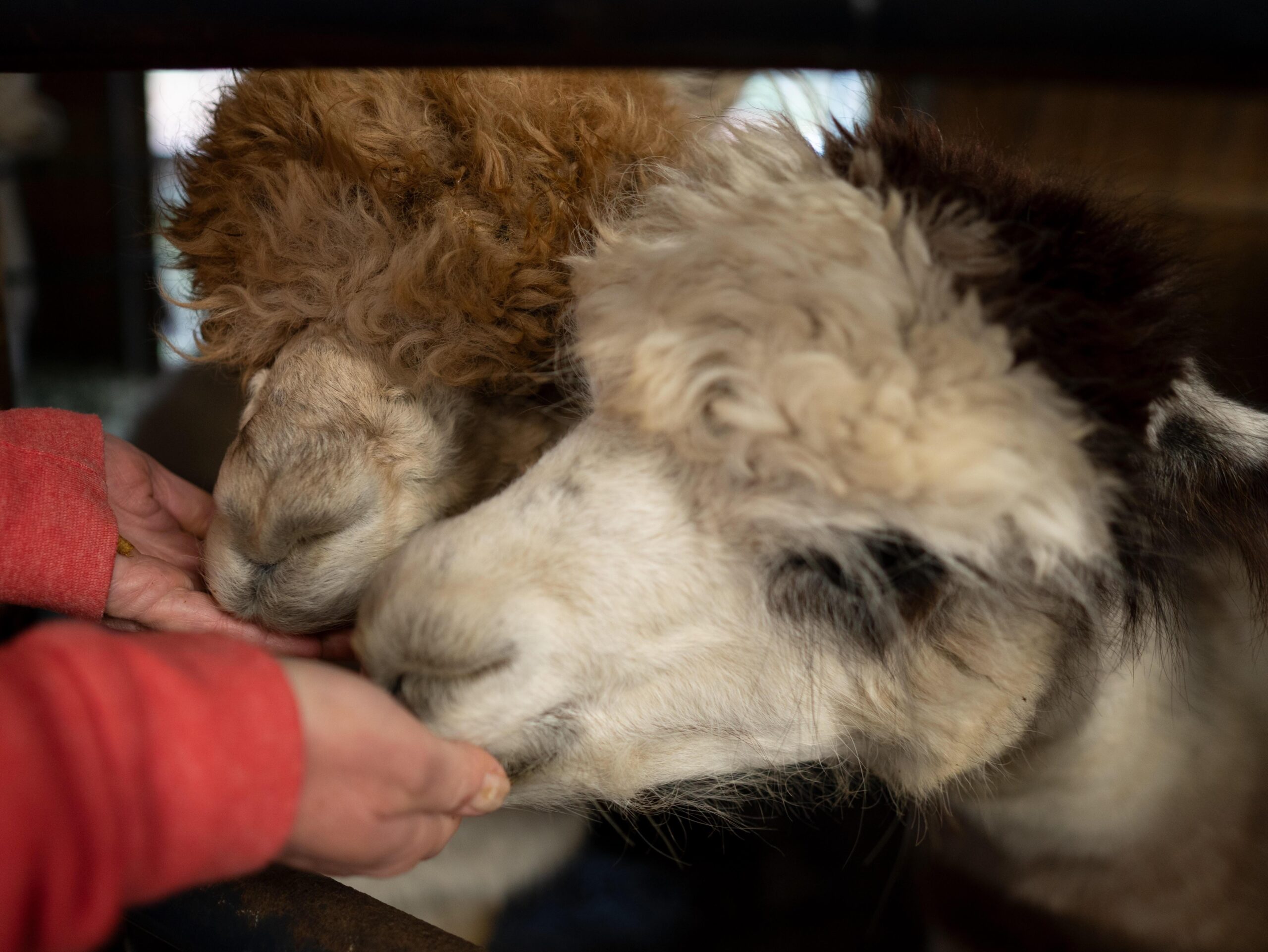Choose a job you love, and you will never have to work a day in your life.
For Lisa DeWetter and Jonathan King, who founded Green River Alpacas in 2009, this rings true.
Across the street from this couple’s home in Exeter, Rhode Island, they have found a love for raising these animals, according to DeWetter. They have been able to turn their love into a lifestyle, and their lifestyle into a business.
“It’s passion, it’s totally passion,” DeWetter said. “We do it because we love it, we love them and we love the fact that it brings so many really nice people.”
Although both DeWetter and King are only part-time farmers, they’ve invested substantial time and resources into building a suitable home for their farm animals. The 13 acres of farmland at Green River Alpacas is home to, of course, alpacas, along with goats, ducks and chickens.
Their return on investment is far greater than the sales of alpaca-lined accessories and pasture-raised chicken and duck eggs. The satisfaction of waking up across from their herd of cultivated livestock is worth every penny.
In fact, what profit they do earn goes right back to where it came from.
“[The alpacas are] an animal that actually helps pay for their own grain by giving us the fleece that we can turn into a product,” Dewetter said. “We just turn all that right back into grain and hay for them for the year.”
Their devotion to the animals stems from the endearing personalities of the alpacas, which are more pet-like than one might think, according to DeWetter.
“Alpacas, personality wise they’re a lot like cats where they’ll interact with you when they feel like it,” DeWetter said. “They’re just a really nice farm animal to have and be able to expose people to them.”
When DeWetter and King visited a farmers market home to alpacas in 2008, their future as farmers seemed inevitable.
“We had never seen an alpaca,” King said. “We went to a farmer’s market… [They] had alpacas there and they had a baby, my wife immediately fell in love with him.”
This sparked a connection with the animals, and has led the pair to where they are today.
“When the opportunity opened up for this piece of property we kind of ran with it,” DeWetter said. “[Jonathan] bought me a herd of four for Christmas and we went from there.”
For DeWetter and King, the animals have always come first, and the business comes second.
Still, they’ve found themselves owners of a gift shop, carrying high-quality products made from the fleece of their neighbors across the street.
The mittens, hats, socks and many more accessories the Green River Alpacas gift shop carries all come from the alpacas they raise. The yarn is spun by DeWetter and made into accessories by local knitters.
“When you’ve had alpaca socks or a product made from alpaca, it’s really hard to not want it again,” DeWetter said. “It’s very expensive because it’s a niche market, it’s not mass-produced the way wool is.”
Although they are truly keen in what they do, it is not to say that it doesn’t come with any hardship.
“They average between $300-$500 per animal per year, that’s probably going up,” King said. “When we got into this business you could buy a good second-cut grassy hay for $6.50, $7 a bale and now it’s $15.”
The financial burden is just one issue, tending to the animal is another.
“[The] end of spring, beginning of summer, shearing day is always a big stressor, it’s a big day,” King said.
But the stress and struggles of tending to these farm animals are well worth it.
“We have generations here, we have grandmothers, mothers,” DeWetter said. “They recognize their family, they kind of stay together as their own little herd, part of a bigger herd.”
Learn more about Green River Alpacas, their animals and products, visit their website https://greenriveralpacas.com/ .

